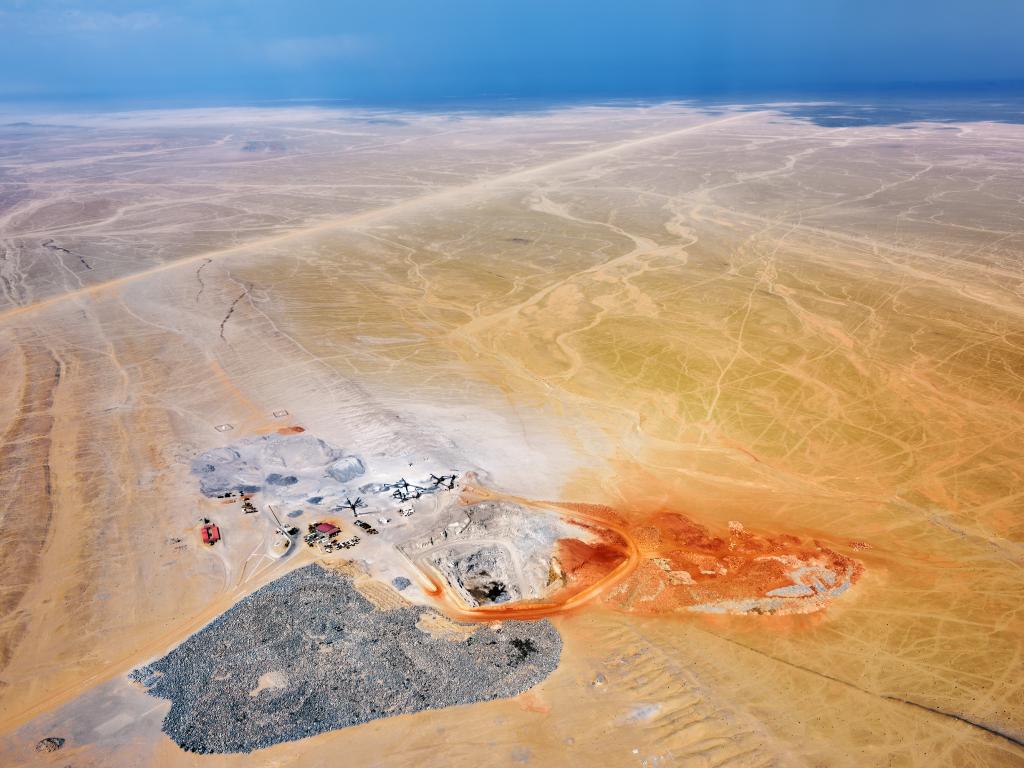Corporate Social Responsibility: The Need for Legislation in the Namibian Mining Sector

Mining companies operating in Namibia approach the notion of corporate social responsibility (CSR) as a business strategy to gain favour with communities in areas where mining takes place. Compliance with CSRs means gaining acceptance from the relevant community and therefore provides a social licence to a mining company to operate in a specific area or community effectively.
A company also demonstrates its intention to improve the society within which it operates by promoting CSRs. The majority of mining companies operating in Namibia occasionally publish CSR reports on their respective websites to display projects undertaken and to promote their image as a responsible business in the communities.[1] Mining companies such as Rössing, Swakop Uranium, Langer Heinrich, B2Gold, Dundee Precious Metals and the Debmarine-Namdeb Foundation, but to mention a few, have taken CSR initiatives seriously and invested millions in various communities and projects, ranging from skills upgrade to payment of school fees.
It is, however, unclear whether the reports published on mining companies’ websites give a clear picture on the status of CSR projects since many of the reports are not dated.[2] Furthermore, little research has been conducted in the Namibian mining sector to determine whether CSRs indeed bring about positive change for communities affected by mining. Consequently, at present, there is no definitive manner in which society can determine whether mining companies live up to promises made or whether CSRs are merely an attempt to create a positive image for mining companies.
Part of the problem is the fact that in Namibia compliance with CSRs is not imposed by legislation as a precondition for obtaining mining or prospecting licenses.[3] In South Africa, for example, CSRs have been given recognition to such an extent that South African legislation makes it mandatory for an applicant for mining rights to demonstrate how CSRs will be complied with.[4] In Namibia, it is up to mining companies if they take the initiative to reduce the negative impacts of mining projects and to improve the living conditions of local communities.
The positive effects of CSR can bring about social and economic change in areas where the government cannot reach because mining companies invest directly in areas where their mining activities take place. Investments can take the form of building hospitals, schools, shops and promoting other social projects.
CSRs, however, can also contribute on a larger scale by creating economic infrastructure. In this manner, the capabilities of local services and suppliers of materials required to produce the final product of mining processes can be developed, thereby eliminating the need to export raw materials. Value can be added locally thereby creating more jobs and assisting the Namibian government in attaining the fundamental goal of industrialisation as per Vision 2030.[5] Therefore, CSRs have potential in promoting the social and economic well-being of Namibian people. To do so, however, effective regulation of CSR should be implemented in consultation with all stakeholders, including the communities directly affected by mining operations.
Considering the fact that the Namibian economy relies greatly on extractive industries, mining companies can contribute significantly to socio-economic change in Namibia. By giving effect to CSRs, mine companies can address issues that are not addressed by existing government development initiatives in poor and rural communities, which is where mining activities usually take place. The identification of appropriate CSR projects is therefore important. Regulation must ensure that CSR projects do not only serve the concretizing of good reputation but that it also provides relevant and suitable infrastructure and support for communities, even after a mine has closed shop. However, until the Namibian government introduces legislation to make compliance with CSRs mandatory, mining companies will be able to decide whether and how they are going to comply with CSR. It seems like an opportunity missed.
Written by Priscilla Nande
[1] See websites of various mining companies that operate in Namibia, examples such as B2Gold and Namdeb that have dedicated a section of their websites explaining their CSR goals and commitments.
[2] This is generally the approach as mining companies would post pictures depicting CSR activities but no dates are displayed. Therefore, the only way one can determine whether CSR activities are ongoing or active is when the media publishes or reports it. One example from many would be the corporate responsibility information published on B2Gold’s website [http://www.b2gold.com/corporate-responsibility/].
[3] Mostert H, Chisanga K-M, Howard J, Mandhu F, Van den Berg M, and Young C-L “Corporate Social Responsibility in the Mining Industries of Namibia, South Africa, and Zambia: Choices and Consequences” in Barrera-Hernández L, Barton B, Godden L, Lucas A, and Rønne A (eds) Sharing The Costs and Benefits of Energy and Resources Activity (2016, OUP: Oxford) ISBN 9780198767954, at 17
[4] Mostert et al (2016:17). In terms of sections 23 (h), 24 (3), 25 (2), 28 (2) and 85 (3) amongst others, the Mineral and Petroleum Resources Development Act 28 of 2002 provides that a mining company has to submit a social and labour plan when applying for mining rights. Social and labour plans are regarded as forming part of CSR.
[5] In 2004, Namibia adopted Vision 2030 that aims at “presenting a clear view of where Namibia is, were it wants to go from here, and over what time frame. It is a vision that will take Namibia from the present into the future, a vision that will guide the nation to make deliberate efforts to improve the quality of life of the Namibian people.”
